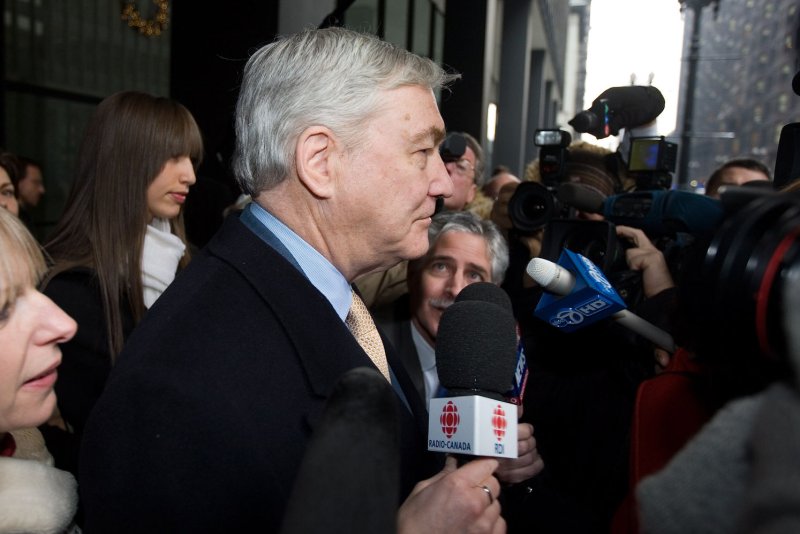Former Media Mogul Conrad Black leaves federal court in Chicago on December 10, 2007, after he was sentenced to 78 months in prison for corruption. File Photo by Brian Kersey/UPI |
License Photo
May 16 (UPI) -- President Donald Trump issued two pardons on Wednesday, including a former newspaper publisher who authored a book last year that spoke highly of the American leader.
The president issued pardons for author Conrad Black and former California lawmaker Patrick J. Nolan, who served more than two years in prison on public corruption charges.
Black was convicted on fraud charges in 2007, which included embezzlement and obstruction of justice. He served more than three years in prison and was ultimately deported to his native Canada after his release in 2012. As part of his penalty, he was banned from the United States for 30 years.
"Prosecutors alleged that [Conrad] Black had committed several acts of mail fraud and obstruction. The Supreme Court of the United States, however, largely disagreed and overturned almost all charges in his case," White House Press Secretary Sarah Sanders said in a statement. "He nevertheless spent 3.5 years in prison.
"An entrepreneur and scholar ... Black has made tremendous contributions to business, as well as to political and historical thought."
Sanders noted that former Secretary of State Henry Kissinger, conservative commentator Rush Limbaugh and singer Elton John had all publicly supported Black.
The White House statement did not mention Black's book Donald J. Trump: A President Like No Other, which greatly praised the president and called him a "friend."
Nolan is the director of the Center for Criminal Justice Reform at the American Conservative Union Foundation.
The White House suggested Nolan took a plea deal in his corruption case because he faced "decades" in prison if his defense had failed.
"Nolan's experiences with prosecutors and in prison changed his life," it said. "Upon his release, he became a tireless advocate for criminal justice reform and victims'rights. In fact, it was because of this work that the president learned of Mr. Nolan's case."















